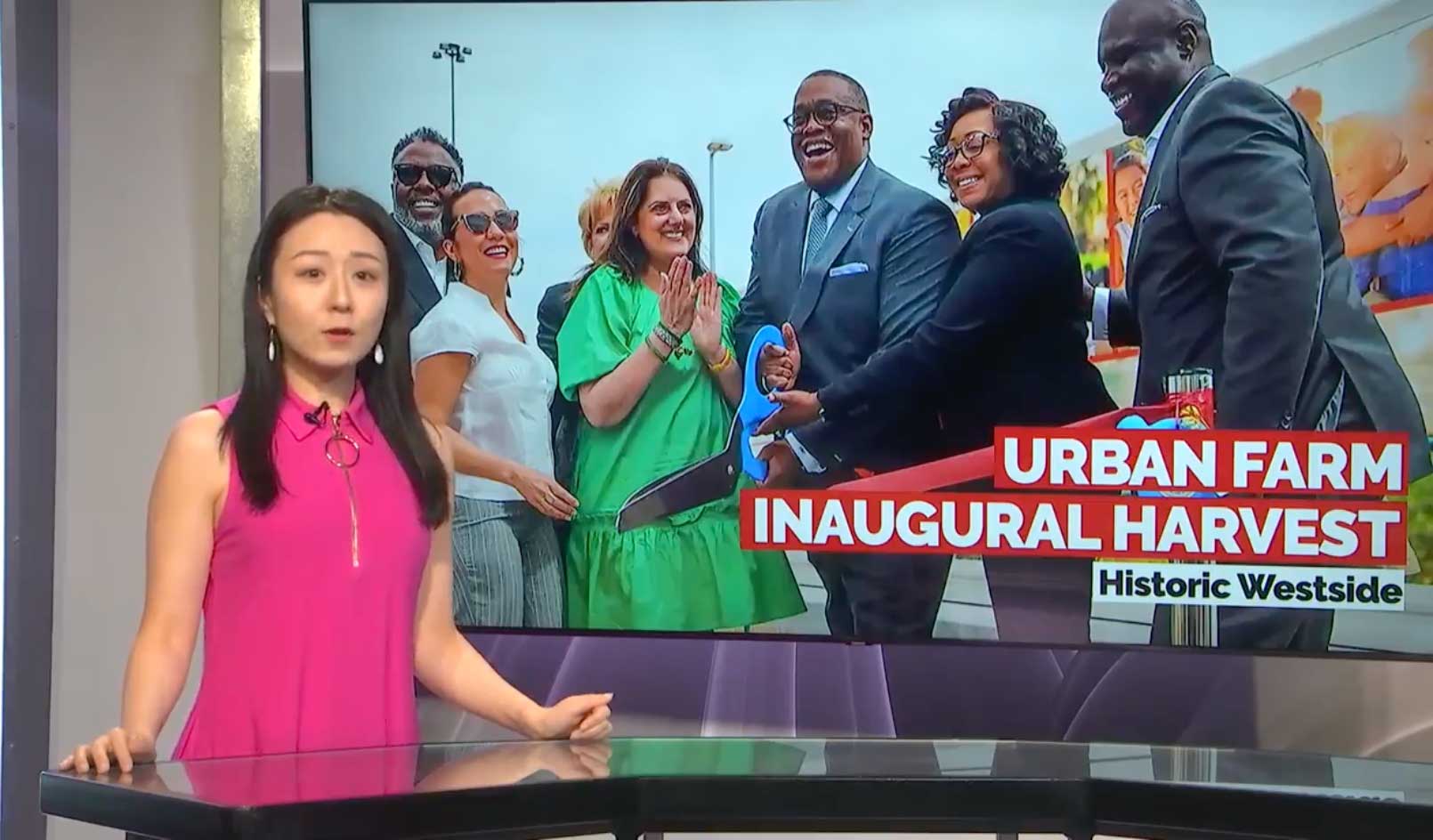Historic Westside’s urban farm harvest ready for distribution
Historic Westside’s urban farm harvest ready for distribution
April 13, 2023
Las Vegas Review-Journal
By Ricardo Torres-Cortez
The Historic Westside’s urban farm’s inaugural harvest is just about ready to be distributed to those in the community experiencing food insecurity — in many cases for free.
The city on Wednesday hosted a ribbon-cutting ceremony outside a pair of 40-foot shipping containers converted into hydroponic pods, which sit in the previously shuttered James Gay III Park near Harrison Avenue and B Street.
Growing in them: Nevada lettuce, green beans, parsley, collard greens, basil, cilantro, arugula, berries and even bok choy and houseplants, Mayor Carolyn Goodman said.
“I can’t think of a better project than this urban farm,” she said. “Many of us took for granted that we grew up eating fresh fruits and vegetables that were readily available to our families, but to many in the Historic Westside, it has not been the reality.”
The greens and fruits, being grown year-round, will come at no cost to Nutrition Assistance Program beneficiaries, which is about 45 percent of the predominantly Black community.
Neighborhood residents will obtain discounts, while others will pay market prices.
Initially, the groceries will be distributed through farmers markets and food pantries.
An on-site “cooperative grocery store” is in the works, as are housing and retail space near the park, which officials project will become a community gathering space, according to the city.
‘Very historic day’
Councilman Cedric Crear, who represents the ward, declared Wednesday a “very historic day” for the community.
“It’s incredibly exciting and gratifying to see this Historic Westside come back alive,” he said.
The first harvest, planted in early March, is expected to be ready late this month, Crear said.
MGM Resorts International, which kick-started the project with a $500,000 donation to secure the converted containers from a Boston-based company, vowed to purchase leftover products for its restaurants.
The farm is part of the city’s “Hundred Plan,” an investment started in 2016 to help redevelop the neighborhood, which is besieged by food insecurity and unemployment.
Las Vegas resident Justin Michael Lewis learned on social media about the ceremony and “wanted to come out and support.”
“This is huge,” he said. “What this really means is a way for us to connect with nature and the community.”
Lewis said his support will be ongoing.
“This is a project that’s going to be able to revitalize (the Historic Westside) and give back especially to underserved and impoverished communities to have ample food for their families,” he said. “Having an extra supply here is better than having not enough.”
Lewis then shared photos of the event to his 5.4 million followers on Instagram.
12,000 plants
Tammy Malich, who leads Las Vegas’ Department of Youth Development & Social Innovation, told the Review-Journal that the farm is being overseen with a consulting firm, but that trained city staff will also be involved.
“When it’s time to harvest, it will be all hands on deck,” she added. The containers can turn over fresh harvests in three to six months, she said.
Yearly operational costs to grow eight tons of produce — or 12,000 plants — will vary between $33,000 to less than $100,000, depending if all of it was given away for free or all sold at market cost, Malich said.
Malich said the city partnered with a chef’s culinary program that’s educating children about the farm-grown produce.
They will staff mobile training academies to share that wisdom with the community so they, too, can cook “healthy, tasty foods.”
The city hopes that the accompanying grocery store will be built in the next couple of years, but its timeline, like those for housing and the retail space, is fluid, Malich said.
Crear said the city looked at places such Denver, where city-run, shipping-container urban farms have proven successful.
“There is no shame in stealing a good idea,” he said.

